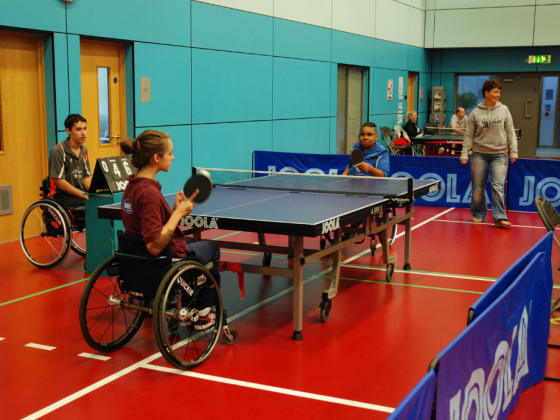The national charity and leading voice for disabled people in sport and activity, Activity Alliance, has published the latest Annual Disability and Activity Survey, which shows slow progress in engaging more Disabled People after the COVID-19 pandemic. Greater effort is needed now to tackle inequalities that affect Disabled People, so no one feels forgotten.
Key findings include:
- Less than 3 in 10 Disabled People feel encouraged to return to physical activity after the pandemic.
- The pandemic has led to the support Disabled People need to be active being less available, and an increase in barriers relating to health and finances.
- Only 4 in 10 Disabled People feel they can be as active as they want, in contrast to non-disabled people who are now more likely to say they can be as active as they want (62% to 69%).
- There is a clear sense of disconnect with how Disabled People actually feel, with less than half (47%) thinking that physical activity and exercise is for ‘someone like me’. This is a significant decline from 57% in 2020 and when compared to 72% of non-disabled people believing activity is for them.
- Disabled People are being left out as we return to activity and feeling less encouraged to be active. This is despite 8 in 10 wanting to be more so (compared to 51% of non-disabled people).
- For those Disabled People taking part in activity, they are having less positive and inclusive experiences since the pandemic. They are less likely than last year to feel activity leaders met their needs and included them and less likely than non-disabled people to say returning to activity was a positive experience (52% vs 70%).
- There is a strong feeling among Disabled People that the workforce at many levels doesn’t understand disability and that spaces still aren’t accessible.
- 78% of Disabled People say their impairment or condition stops them being active, often related to low awareness of suitable activities and fears about safety and risk.
Director of Development and Volunteering at Table Tennis England, Greg Yarnall said:
“We are committed as a Governing Body to ensure that we and our clubs, leagues and community partners have the right environment and opportunities available for Disabled People to get involved in table tennis. Results from our membership survey last year clearly demonstrate that:
- Only 13% of Disabled People in table tennis consider the sport as inclusive as it can be.
- Only 8% of Disabled People in table tennis consider the sport’s role models who identify as having a disability or long-term illness to be ‘extremely’ visible.
“Our recent Level the Table strategy sets out how we will engage more Disabled People in table tennis and our 6-month report highlights some of the progress being made.
“The shared goals that have been established with British Para Table Tennis to increase the number of Disabled People playing, coaching, volunteering or officiating in table tennis continue to progress and we look forwards to this relationship becoming even stronger over the coming months and years.
“Following the results of the Activity Alliance survey it is clear that we all need to do more, if you would like to learn more about engaging Disabled people in your activities, you can visit our ‘Being Inclusive’ area of our website or sign up to our Disability Awareness training module.”






